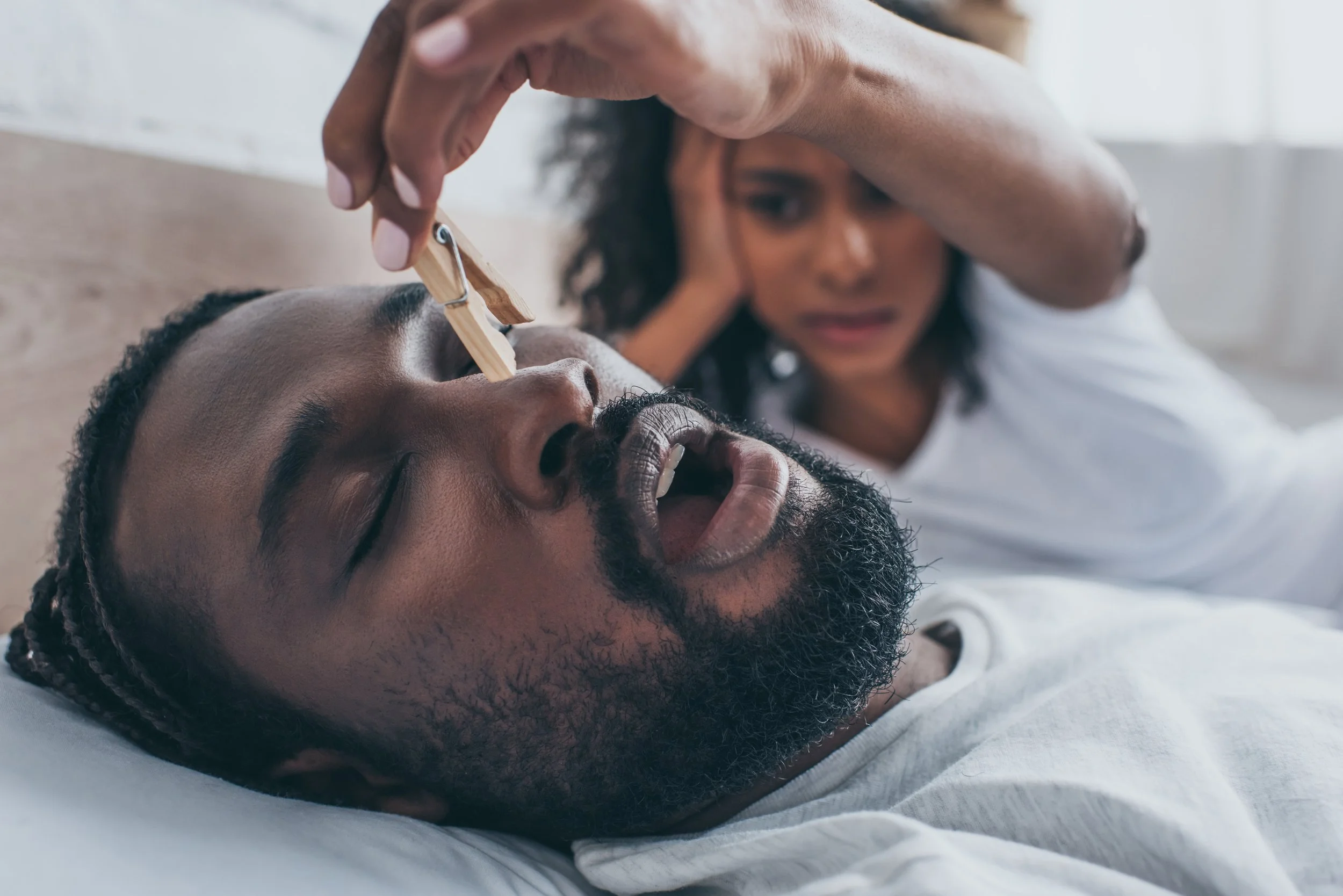If you're on this page, someone has probably told you that you snore—or you have a partner or family member that does.
Snoring is more than just a sound that occurs during sleep. It is a medical disease that should be diagnosed and then treated.
Snoring has been associated with sleep deprivation, daytime drowsiness, irritability, lack of focus and decreased libido. Loud snoring has been associated with increased risk of heart attacks and strokes.
If you or your partner suffer from snoring, call our office today to see how we can help.
Who is more likely to snore?
Nearly everyone snores from time to time, including babies, children and adults. Some people are more likely to snore than others. Snoring risk factors include:
Age: Snoring is more common as we age because muscle tone decreases, causing airways to constrict.
Alcohol and sedatives: Alcoholic beverages and certain medications relax muscles, restricting airflow in the mouth, nose and throat.
Anatomy: A long soft palate (the back of the roof of the mouth), enlarged adenoids, tonsils or a large tongue can make it hard for air to flow through the nose and mouth. A deviated septum (displaced cartilage in the nose) can block the flow of air.
Gender: Snoring is more common in men.
Family history: Snoring runs in families. If you have a parent who snores, you’re more likely to snore too.
Overall health: Nasal stuffiness due to allergies and the common cold block airflow through the mouth and nose. Pregnant women are more likely to snore due to hormonal changes and weight gain.
Weight: Snoring and sleep-related breathing disorders are more common in people who are overweight or have obesity.
When should I talk to my health care provider about snoring?
Consult your sleep doctor if you snore and have any of the following symptoms or signs:
Excessive daytime sleepiness
Morning headaches
Recent weight gain
Awakening in the morning not feeling rested
Awakening at night feeling confused
Change in your level of attention, concentration, or memory
Observed pauses in breathing during sleep
How is snoring diagnosed?
Not everyone that snores has sleep apnea, but everyone with sleep apnea snores. Whether you know you snore or are not sure if you do, a sleep study is necessary to diagnose primary snoring and rule out sleep apnea before making a device for snoring.
Anti-Snoring Devices
Vaughan Dental provides custom fit anti-snoring devices for patients, or family members suffering from the effects of a bed-partner’s snoring.
A custom anti-snoring device is an oral appliance that fits securely in your mouth while you sleep to prevent snoring. It works by moving the lower jaw and tongue muscles forward to open the airway and improve breathing.
The risk of Over-the-Counter Snore Reducing Devices
Over-the-counter snore-reducing devices are affordable and can work when set up appropriately. However, you are on your own when it comes to setting them up and using them.
Snore-reducing devices, when improperly fit, can create side effects like jaw pain and dental changes. Using a snore-reducing device without any supervision by a dentist can leave you at risk for harm, so please be sure to let your dentist know if you are using one.
